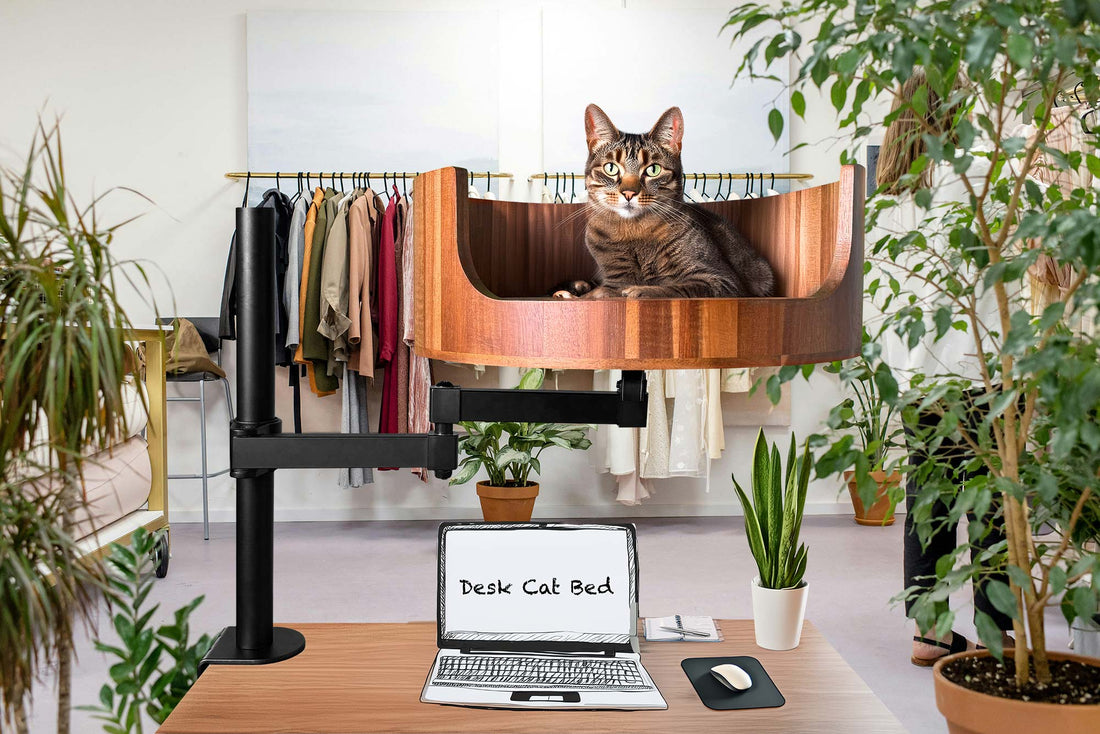
Why Does My Cat Chase His Tail? Understanding the Behavior
Share
Have you ever noticed your cat chasing its tail in circles, seemingly caught up in its own playful routine? This common behavior may seem cute and amusing, but have you ever wondered why your feline friend engages in this activity? In this article, we will delve into the reasons behind why cats chase their tails, exploring the various factors that contribute to this behavior.
From instinctual behaviors to underlying health issues, there are several reasons why your cat may feel compelled to chase its tail. Understanding the motivations behind this playful yet sometimes puzzling behavior can provide insight into your cat's well-being and happiness. By shedding light on the reasons behind tail-chasing behavior, we can better comprehend our feline companions and provide them with the care and attention they need to thrive. So, let's unravel the mystery of why cats chase their tails and gain a deeper understanding of this fascinating aspect of feline behavior.
1. Tail-chasing behavior in cats is often linked to playfulness and curiosity, rather than a medical concern.
2. Cats may chase their tails to release pent-up energy or as a way to entertain themselves.
3. Tail-chasing can also be a sign of stress or anxiety in cats, especially if it becomes excessive or compulsive.
4. Providing mental and physical stimulation through interactive toys and playtime can help reduce tail-chasing behavior.
5. If tail-chasing persists or is accompanied by other concerning symptoms, it's important to consult with a veterinarian to rule out any underlying health issues.
Instinctual Behavior
Cats have a natural hunting instinct that drives them to chase moving objects, including their own tails. This behavior stems from their ancestors who needed to hunt for food in the wild. By chasing their tails, cats are essentially practicing their hunting skills and honing their coordination and agility.
Boredom or Lack of Stimulation
Sometimes, a cat may chase its tail out of sheer boredom or a lack of mental or physical stimulation. If a cat is not challenged enough or does not have enough toys or activities to keep it entertained, it may resort to chasing its tail as a way to alleviate boredom and release pent-up energy.
Anxiety or Stress
In some cases, tail chasing can be a sign of anxiety or stress in cats. Cats may engage in this behavior as a way to self-soothe or cope with underlying stressors in their environment. It is important to identify and address the root cause of the anxiety to help prevent compulsive behaviors like tail chasing.
Medical Reasons
Occasionally, tail chasing can be a symptom of an underlying medical issue such as fleas, allergies, or anal gland problems. It is essential to rule out any potential health concerns by consulting with a veterinarian if your cat's tail chasing behavior is persistent or accompanied by other symptoms such as excessive grooming or weight loss.
FAQs for Desk Cat Nest
Why does my cat chase his tail?
Cats may chase their tails for a variety of reasons, including boredom, excess energy, or simply because they find it fun. It could also be a sign of a medical issue such as fleas, allergies, or a skin irritation.
Will the Desk Cat Nest help prevent my cat from chasing his tail?
While the Desk Cat Nest can provide your cat with a cozy and comfortable place to relax, it may not completely eliminate tail chasing behavior. However, providing your cat with plenty of mental and physical stimulation, such as interactive toys and playtime, can help reduce this behavior.
Can the Desk Cat Nest be used as a distraction for my cat when he chases his tail?
Yes, the Desk Cat Nest can serve as a distraction for your cat when he starts chasing his tail. Placing some toys or treats inside the nest can help redirect his attention and provide a more positive outlet for his energy.
Is the Desk Cat Nest easy to clean?
Yes, the Desk Cat Nest is designed to be easy to clean. The removable cushion and washable cover make it simple to keep the nest fresh and hygienic for your cat.
Will my cat enjoy using the Desk Cat Nest?
While every cat is different, many cats enjoy having a cozy and elevated perch to rest and observe their surroundings. The soft cushion and raised sides of the Desk Cat Nest provide a comfortable and secure space that your cat may appreciate.
In conclusion, providing your cat with a Desk Cat Bed can help alleviate the behavior of chasing its tail. This cozy and comfortable bed offers a designated space for your cat to relax and feel secure, reducing stress and anxiety that may lead to tail-chasing. With its durable construction and plush materials, the Desk Cat Bed provides a safe and inviting sanctuary for your feline friend to curl up and unwind, ultimately promoting a sense of calm and contentment. Invest in a Desk Cat Bed today to enhance your cat's overall well-being and provide them with the comfort they deserve.



















































